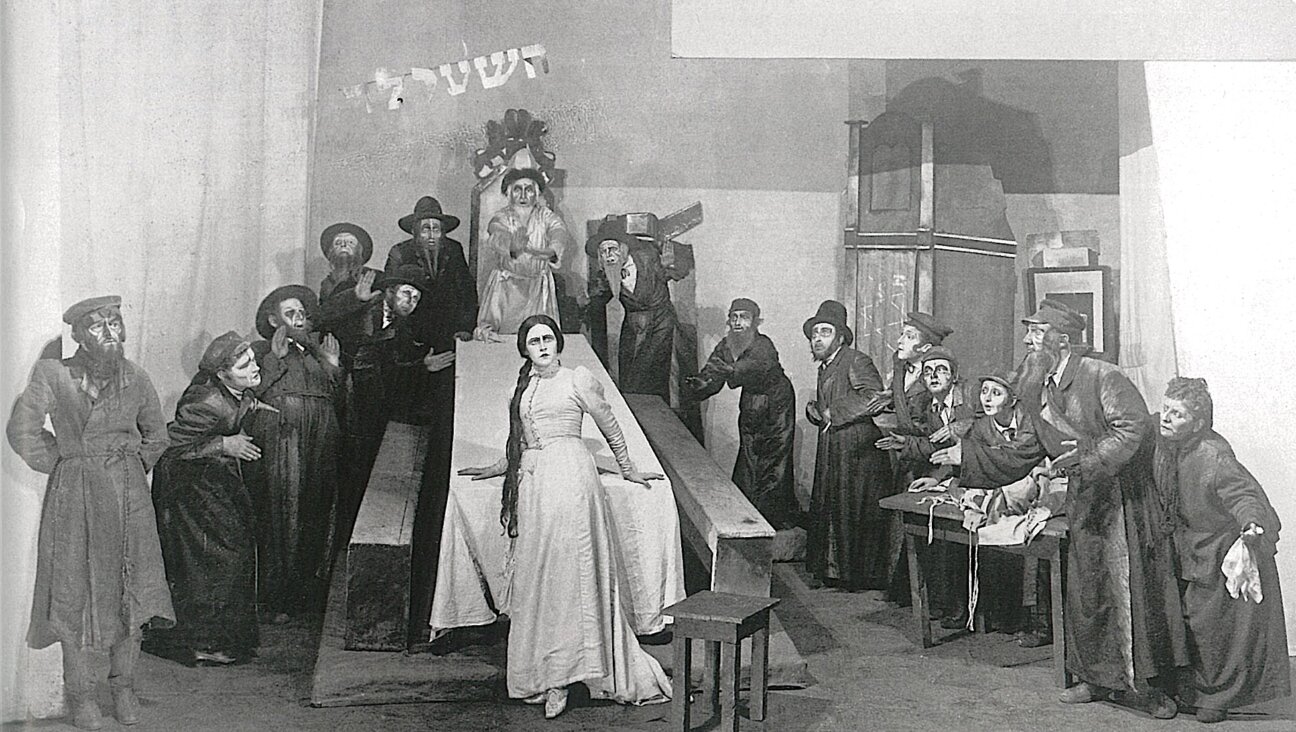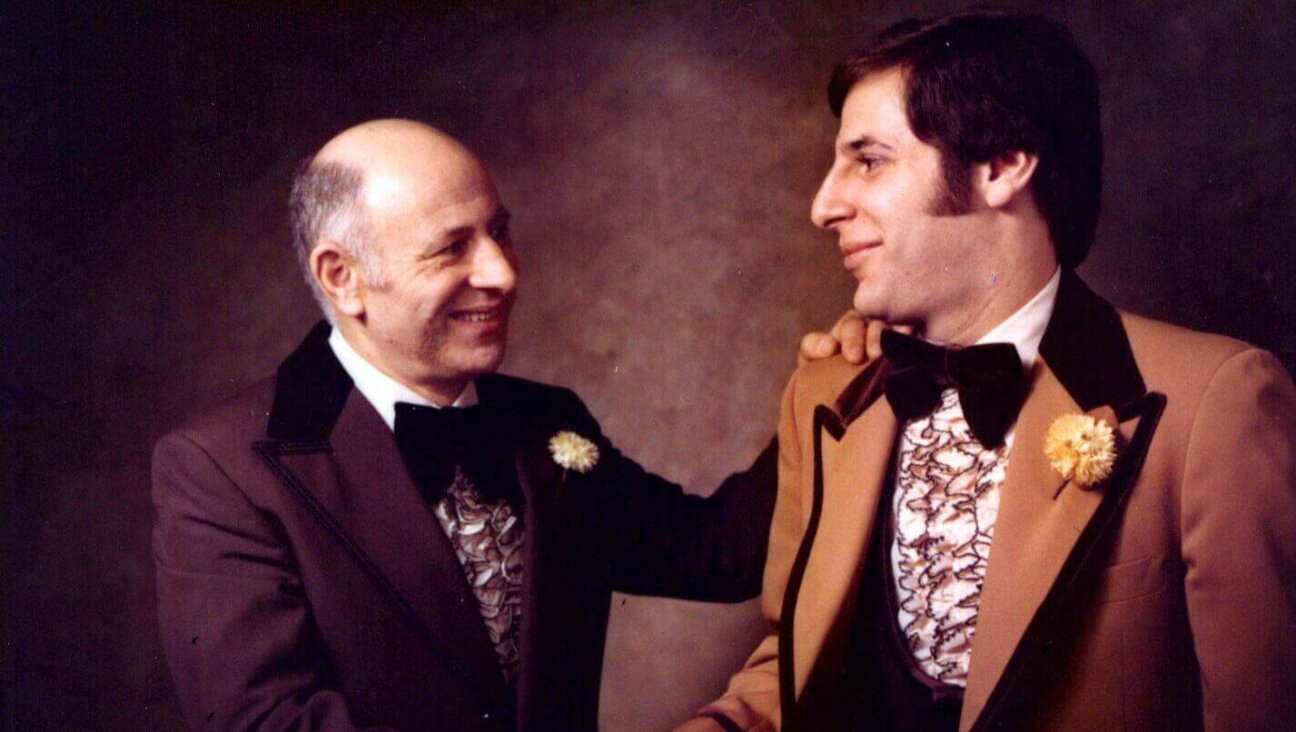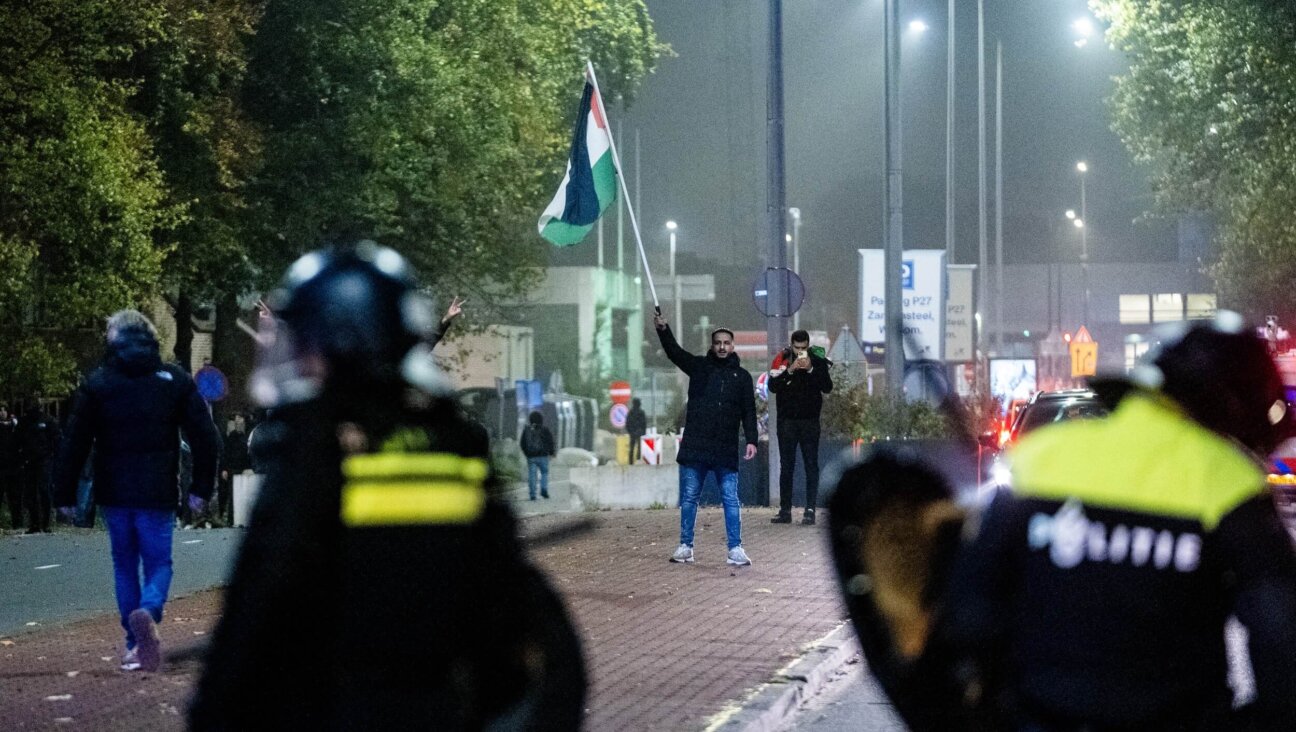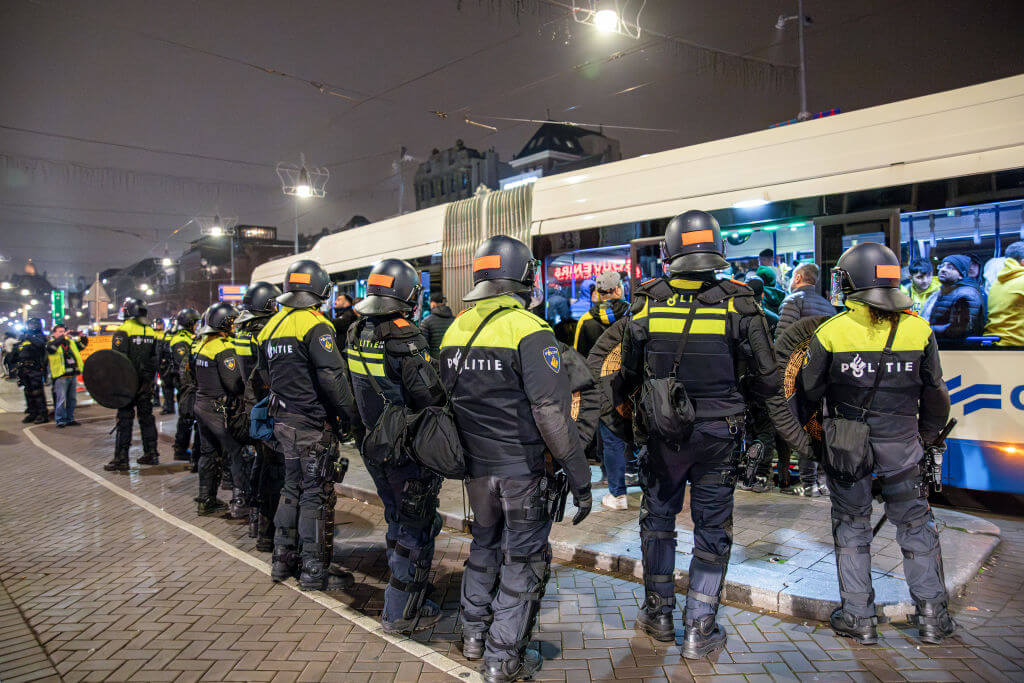Why Was Historian Who Blames Jews For Complicity with Nazis Considered For Humanitarian Prize?

A statue of Jan Karski at Tel Aviv University. Image by wikimedia
This article originally appeared in the Yiddish Forverts.
Jeffrey Gottlieb is getting fifteen minutes of fame for the second time in his life. The co-founder of the “Polish-Jewish Dialogue Committee,” Gottlieb has spoken with Jewish organizations and news outlets this week to explain why his group bestowed its “Jan Karski Humanitarian Award” on Ewa Kurek, a Polish academic who has written extensively about “lying” Jews who accuse Poles of abandoning them during the Holocaust.
The Committee’s award ceremony was slated for April 18, but protests on social media, as well as a complaint from the Simon Wiesenthal Center, prompted Gottlieb to “disinvite” Kurek. As a result, the Consulate General of the Republic of Poland in New York, which was sponsoring the event with the Polish-Jewish Dialogue Committee, cancelled the event.
Gottlieb’s first fifteen minutes of fame came in April 2012 when he was hounded out of the Sixth District congressional race in Queens, New York. A news story in The New York Post at the time suggested that the Queens Democratic machine supported attorney Grace Meng and was using Gottlieb to siphon votes away from another Jewish candidate — splitting the Jewish vote and ensuring Meng’s victory.
A charge of arson against Gottlieb dating back decades, in which he torched his own apartment, surfaced during the campaign and put a decisive end to Gottlieb’s political ambitions.
“He got himself into a bind,” a campaign spokesperson said of Gottlieb’s troubles.
Bestowing an award on Kurek in the name of Polish World War II resistance fighter Jan Karski got Gottlieb into a bind too. Karski, known for his intense efforts to save the Jews from the Nazis, has been recognized as one of the Righteous Among the Nations by Yad Vashem.
Gottlieb concedes that the nomination process for the award was poorly managed.
“She was a recommendation by two people of our committee who had read her books and followed her speeches,” Gottlieb told the Forward. “We did not know that people who had done deeper research said that she is not very helpful in the area of Polish-Jewish relations.”
“Deeper research” reveals that Kurek says Jewish perfidy is intrinsic to Jewish law and communal organization.
“Jews behave like a [herd] of lions in a threatening situation,” Kurek says in a YouTube video. “Lions are said to throw the weakest ones to death, to save the rest. And this is the norm among Jews. We Christians, since the beginning of … time, we have one principle: In the situation of a threat, the strong protect the vulnerable. If someone tells you about a Judeo-Christian civilization, then there is no such thing because this [Judaic] law excludes our civilization.”
Kurek insists that Jews such as Emmanuel Ringelblum, the chronicler of daily life in the Warsaw Ghetto, and political theorist Hannah Arendt, who coined the much-disputed idea of the “banality of evil,” support her belief that Jews, “murdered by the Germans,” had the “consent and cooperation and participation of Jews, Jewish police, and Judenrats.”
“Kurek is more subtle than [Holocaust denier] David Irving,” Holocaust scholar Berel Lang told the Forward. “She doesn’t deny the genocide but argues rather that the Jews were complicit with the Nazis in organizing the wartime ghetto system.”
Indeed, in Your Life is Worth Mine: How Polish Nuns Saved Hundreds of Jewish Children, Kurek writes that “Jewish ghettos existed in Poland long before the German occupation, and it was not Poles who created these ghettos but the Jews themselves … [Their] own language, religion, clothes, customs, traditions and independent professional life constituted a culturally closed circle.” Kurek writes that Jews alone were responsible for their social ostracism from Polish Catholic society. If they had assimilated into the dominant culture, as western European Jews had, they might have been less “difficult to rescue from the Holocaust.”
A page on the Polish-Jewish Dialogue Committee website echoes Kurek’s ideas about Polish Jews’ self-imposed isolation from Christian Poles: “Jews and Poles have lived together in relative harmony for at least six hundred years…. Many Jewish people, however, lived in self-isolation in small towns, where they sometimes represented fifty, sixty, and even seventy percent of the population.”
The entry of Jews into Poland was facilitated during the rule of Bolesław III (1102–1139) by the Magdeburg Law, a charter given to the Jews, among others, that gave Jews the right to define their neighborhoods and economic sphere of interest. Historian Gershon Hundert has written that by the time of the Polish-Lithuanian Commonwealth (1572–1795), Jews were living in towns with Polish and ethnic German populations.
“It should be stressed that not only was the Jewish population essentially urban, but that it lived in the midst of a society that was overwhelmingly rural and agricultural,” Hundert writes in Jews in Poland-Lithuania in the Eighteenth Century: A Genealogy of Modernity. “The consequence of this was that half of the urban population, and in large parts of the country more than half, was Jewish.”
As of press time, Kurek did not respond to an email contact form asking her to comment on the Committee’s decision to rescind its award to her. Gottlieb says he regrets that the Committee, which has no connection to the Polish Consulate, did insufficient due diligence on Kurek’s writings. He maintains, however, that he canceled the awards ceremony because the Polish consul general, also an award recipient, had a scheduling conflict and could not attend. Pressure from the Wiesenthal Center, which planned on issuing a press release condemning the Polish-Jewish Dialogue Committee, persuaded Gottlieb to scrub the event altogether.
On Facebook, Kaja Mirecka Ploss, executor of Jan Karski’s intellectual estate, expressed her “enormous indignation” over the decision by the Polish-Jewish Dialogue Committee to associate Kurek’s name with Jan Karski.
An adviser to Poland’s prime minister told the Associated Press on April 11 that the award was “never a government initiative, but authorities acted to stop an event that would have been divisive.”
“We canceled the event because we’re not here to create wars,” Gottlieb said. “We’re here to create peace.”
A message from our CEO & publisher Rachel Fishman Feddersen

I hope you appreciated this article. Before you go, I’d like to ask you to please support the Forward’s award-winning, nonprofit journalism during this critical time.
At a time when other newsrooms are closing or cutting back, the Forward has removed its paywall and invested additional resources to report on the ground from Israel and around the U.S. on the impact of the war, rising antisemitism and polarized discourse.
Readers like you make it all possible. Support our work by becoming a Forward Member and connect with our journalism and your community.
— Rachel Fishman Feddersen, Publisher and CEO























